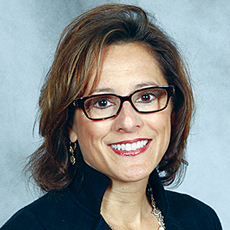
Healthcare for seniors these days all too often focuses on the ill and the infirm, bedridden and beholden to physicians and nurses. Less attention goes to those who could most benefit from education and preventative care: those who aren’t yet acutely “sick” but – without intervention – may be on a glide path to needing long-term care.
It’s a system that desperately needs to change, or at least accommodate alternative models, especially in this era of increased lifespans and rising medical costs.
It’s also a popular area of exploration as seniors are increasingly looking for a better quality of life through improved wellness.
This is why I’m watching what Arizona-based nonprofit Sun Health Services is doing with its Sun Health Center for Health & Wellbeing.
At our recent Healthcare Summit, Ron Guziak, president and chief executive officer of Sun Health, discussed the need to offer more services targeted to the “middle tier” of seniors. Programs and services are often developed to focus on those that are acutely ill or have unmanaged chronic conditions that lead to expensive hospitalizations and emergent treatment. But the largest numbers of seniors are often ignored when it comes to care innovations.
He noted that, at any given time, 3% of the senior population is the sickest, representing the overwhelming majority of the cost, and 12% undergo surgeries, cancer treatment, and other emergencies. The other 85 percent deem themselves healthy and only occasionally use healthcare services.
Sun Health’s aim is to provide health and wellness services for that underserved 85%.
“If we focus on only the sickest of the sick while ignoring the others,” Guziak said, “we’ll soon only be left with the sickest of the sick.”
Insurers have been slow to catch on to this, he added. They focus on improving their cost and profitability by attending to those with the highest cost first – not necessarily to the masses.
The Sun Health Center for Health & Wellbeing offers community educational solutions that are personalized, delivered primarily face-to-face, made appropriate for a patient’s health literacy, reflective their goals and focused on self-management of chronic conditions and risk reduction.
Some of the center’s offerings include an eight-week course on diabetes self-management education; a 12-week series on pre-diabetes; personal sessions on nutrition with a registered dietician; and programs on balance, strength training and senior fitness.
Sun Health’s Community Wellness organization also offers community education, care transitions, chronic disease management and medication management.
The care transitions program is important because fewer than 50% of patients understand instructions about how to care for themselves after discharge. Within a month after discharge, 50% of patients have a clinically significant medication error, Guziak said.
The primary tenet is engaging individuals in a path to better health and wellness — the patient is actively involved which improves the chance of success.
Those who are concerned about their health are willing to pay for these services, which, he said, are offered at reasonable rates on a membership and subscription basis. “When individuals are educated and engaged in how to take charge of their health, they have a desire to learn more,” he said.
Sun Health’s success with these programs helps to shed light on how to prepare for aging Boomers: focus on health management and wellness. There will be a viable market for these services.
Betsy Rust, CPA, is a consulting partner with Plante Moran’s senior care and living practice.




